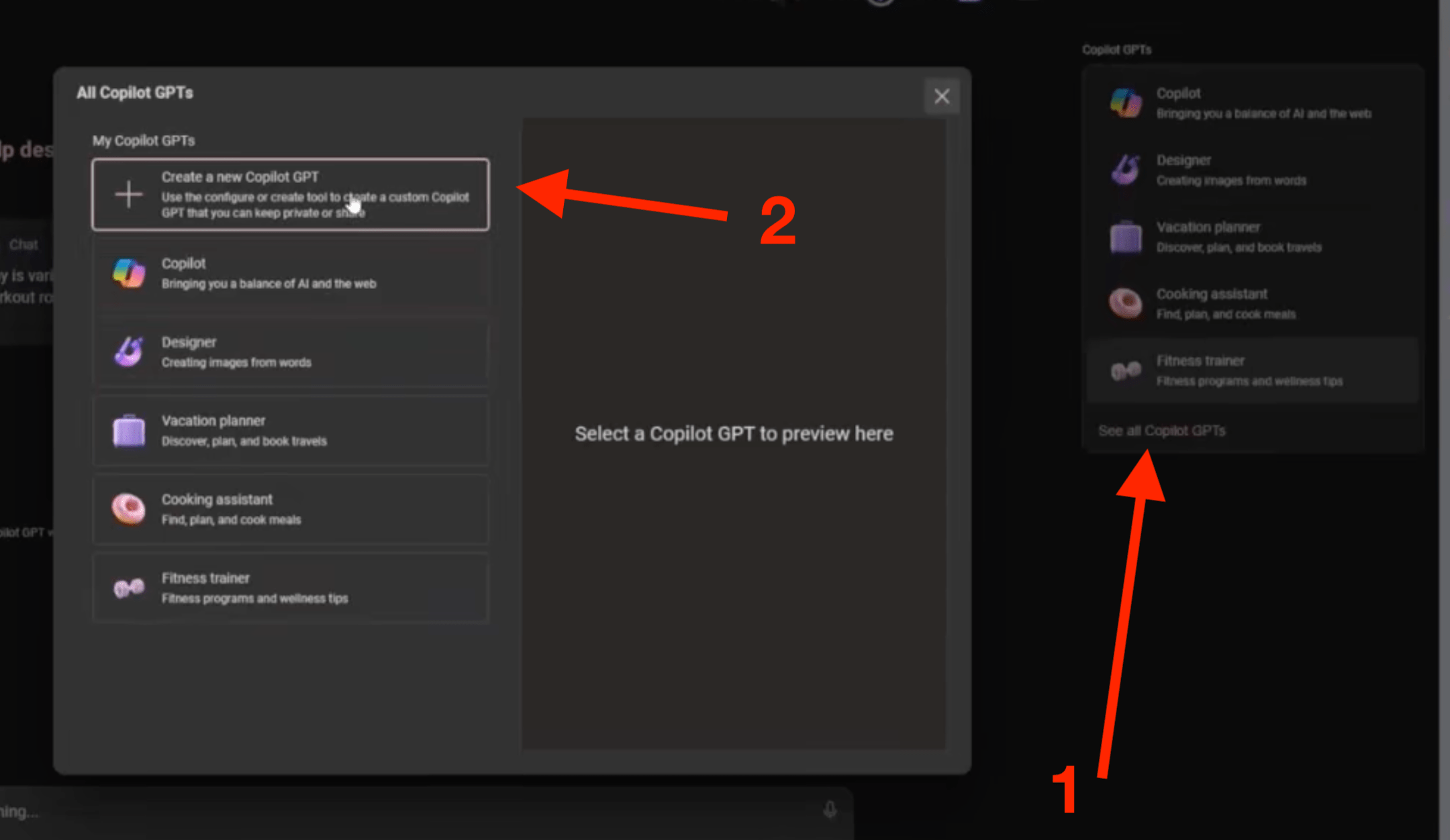Microsoft opens its Copilot GPT Builder to all Pro subscribers

[ad_1]
Join leaders in Boston on March 27 for an exclusive night of networking, insights, and conversation. Request an invite here.
Lawsuits be damned, Microsoft is pushing ahead on its Copilot AI chatbot (based in part on the fruits of its investment in and partnership with OpenAI).
Today, executives from the Redmond-headquartered software giant that is among the most valuable companies in the world announced that Microsoft’s Copilot GPT Builder, a tool allowing users to build and share customized, task-specific versions of the chatbot, is now available to all customers of its paid Copilot Pro tier ($30 per user per month).
The Copilot GPT Builder can be accessed by Copilot Pro subscribers on desktop by moving their cursor over to the right side menu of the Copilot web app and clicking their cursor on the menu item labeled “See all Copilot GPTs.”

This should open an interstitial dialog box with various “Custom GPTs” the user can access, including new ones created by Microsoft, as well as, at the top, an option called “Create a new Copilot GPT.”
VB Event
The AI Impact Tour – Boston
Request an invite
This will open a conversational chatbot interface by default, but the user can toggle between this and another one with forms and fields with tabs on the left side of the screen labeled, “Create,” and “Configure,” respectively.
Like with OpenAI’s similar GPT Builder that preceded it by four months, Microsoft’s Copilot GPT Builder allows the user to select the “Create” tab to begin typing plain language instructions for what kind of custom GPT they want to build in a conversational chatbot interface, and Microsoft’s Copilot GPT Builder will attempt to automatically create it for them, doing all the programming on the backend.
As such, it could potentially be a powerful tool allowing employees who have access to it to create apps that serve their specific job responsibilities, tasks, working style and workflow — all without any technical or programming knowledge.
RAG time for Copilot
Once their custom Copilot GPT is created, the user can navigate to the “Configure” tab with forms and fields to alter the Copilot GPT name, short description of what it does, instructions for how it behaves (also in plain natural language), and even upload a file for retrieval augmented generation (RAG), a technique used by many companies and enterprise users of AI large language models (LLMs), which allows an LLM to access, work with, and retrieve data not originally included in its training set.
“Copilot GPTs are custom versions of Copilot with specific instructions & docs for grounding (RAG) chat responses,” wrote Jordi Ribas, CVP, Head of Engineering and Product for Copilot and Bing, in a post on X.
For example, a company could use RAG to hook up OpenAI’s GPT-4, the LLM that powers the most advanced version of ChatGPT, to their internal document cloud and have it pull information on company policies or even personnel (if they company granted access to these files). Now, it seems that Copilot and its new custom, user-build GPTs will also support such a mechanism allowing for more precise information retrieval.
Users of the Copilot GPT Builder can also toggle on and off web browsing and image generation capabilities using Microsoft’s controversial Designer AI app (based on OpenAI’s DALL-E 3 image generation model).
Examples of Copilot GPTs
On LinkedIn (owned by Microsoft), Brad Abrams, a partner product manager at Microsoft posted links to two custom Copilots he had created that he said all users could access through the Copilot mobile app, even those who aren’t Pro subscribers.
The two he posted are:
- “Synonym Finder: A language expert that assists with finding synonyms for words, covering a wide range of usage and organized in a logical way.
- OKR Assistant: Assists software engineering teams in writing effective OKRs (Objectives and Key Results)“
No OpenAI involvement
Despite the close ties between the companies and similarities between their custom GPT Builders, OpenAI and Microsoft reportedly did not work together on Microsoft’s Copilot GPT Builder tool.
A spokesperson for OpenAI told VentureBeat that the company “did not have involvement” in Microsoft’s GPT Builder.
Yet the Copilot GPT Builder seems clearly inspired by the example set by OpenAI’s GPT Builder and GPT Store, and offers many of the same features — albeit at a slightly higher price (versus $20 monthly for a ChatGPT Plus individual subscription).
Still, the fact that the companies both pursued the idea on their own may add further credence to a report published in The Information late last fall that Microsoft is working to lessen its reliance on OpenAI. Just recently, Microsoft partnered with French open-source AI startup Mistral to bring its latest closed source model Mistral Large to Microsoft’s Azure cloud services, and it previously announced its own in-house AI models such as the Orca family, Phi-2, and Deucalion.
VentureBeat’s mission is to be a digital town square for technical decision-makers to gain knowledge about transformative enterprise technology and transact. Discover our Briefings.
[ad_2]
Source link
